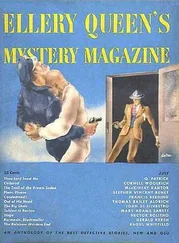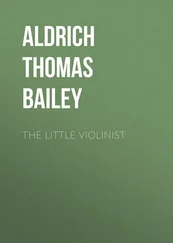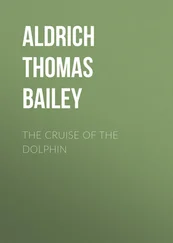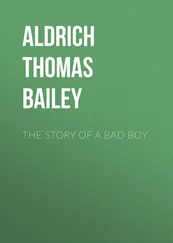Thomas Aldrich - The Queen of Sheba, and My Cousin the Colonel
Здесь есть возможность читать онлайн «Thomas Aldrich - The Queen of Sheba, and My Cousin the Colonel» — ознакомительный отрывок электронной книги совершенно бесплатно, а после прочтения отрывка купить полную версию. В некоторых случаях можно слушать аудио, скачать через торрент в формате fb2 и присутствует краткое содержание. Жанр: foreign_prose, literature_19, foreign_antique, на английском языке. Описание произведения, (предисловие) а так же отзывы посетителей доступны на портале библиотеки ЛибКат.
- Название:The Queen of Sheba, and My Cousin the Colonel
- Автор:
- Жанр:
- Год:неизвестен
- ISBN:нет данных
- Рейтинг книги:3 / 5. Голосов: 1
-
Избранное:Добавить в избранное
- Отзывы:
-
Ваша оценка:
- 60
- 1
- 2
- 3
- 4
- 5
The Queen of Sheba, and My Cousin the Colonel: краткое содержание, описание и аннотация
Предлагаем к чтению аннотацию, описание, краткое содержание или предисловие (зависит от того, что написал сам автор книги «The Queen of Sheba, and My Cousin the Colonel»). Если вы не нашли необходимую информацию о книге — напишите в комментариях, мы постараемся отыскать её.
The Queen of Sheba, and My Cousin the Colonel — читать онлайн ознакомительный отрывок
Ниже представлен текст книги, разбитый по страницам. Система сохранения места последней прочитанной страницы, позволяет с удобством читать онлайн бесплатно книгу «The Queen of Sheba, and My Cousin the Colonel», без необходимости каждый раз заново искать на чём Вы остановились. Поставьте закладку, и сможете в любой момент перейти на страницу, на которой закончили чтение.
Интервал:
Закладка:
Long afterwards, when Edward Lynde was passing through the valley of the Arve, on the way from Geneva to Chamouni, he recollected this bit of Switzerland in America, and it brought an odd, perplexed smile to his lips.
The thousand ghostly shapes of mist which had thronged the heights, shutting in the prospect on every side, had now vanished, discovering as wild and melancholy a spot as a romantic heart could desire. There was something sinister and ironical even in the sunshine that lighted up these bleak hills. The silver waters of a spring—whose source was hidden somewhere high up among the mossy boulders—dripping silently from ledge to ledge, had the pathos of tears. The deathly stillness was broken only by the dismal caw of a crow taking abrupt flight from a blasted pine. Here and there a birch with its white satin skin glimmered spectrally among the sombre foliage.
The inarticulate sadness of the place brought a momentary feeling of depression to Lynde, who was not usually given to moods except of the lighter sort. He touched Mary sharply with the spurs and cantered up the steep.
He had nearly gained the summit of the hill when he felt the saddle slipping; the girth had unbuckled or broken. As he dismounted, the saddle came off with him, his foot still in the stirrup. The mare shied, and the rein slipped from his fingers; he clutched at it, but Mary gave a vicious toss of the head, wheeled about, and began trotting down the declivity. Her trot at once broke into a gallop, and the gallop into a full run—a full run for Mary. At the foot of the hill she stumbled, fell, rolled over, gathered herself up, and started off again at increased speed. The road was perfectly straight for a mile or two. The horse was already a small yellow patch in the distance. She was evidently on her way back to Rivermouth! Lynde watched her until she was nothing but a speck against the gray road, then he turned and cast a rueful glance on the saddle, which suddenly took to itself a satirical aspect, as it lay sprawling on the ground at his feet.
He had been wanting something to happen, and something had happened. He was unhorsed and alone in the heart of the hill country—alone in a strange and, it seemed to Lynde as he looked about him, uninhabited region.
IV
THE ODD ADVENTURE WHICH BEFELL YOUNG LYNDE IN THE HILL COUNTRY
It had all happened so suddenly that one or two minutes passed before Edward Lynde took in the full enormity of Mary's desertion. A dim smile was still hovering about his lips when the yellow speck that was Mary faded into the gray distance; then his countenance fell. There was no sign of mortal habitation visible from the hillside where he stood; the farm at which he had spent the night was five miles away; his stiff riding-boots were ill-adapted to pedestrianism. The idea of lugging that heavy saddle five miles over a mountain road caused him to knit his brows and look very serious indeed. As he gave the saddle an impatient kick, his eyes rested on the Bologna sausage, one end of which protruded from the holster; then there came over him a poignant recollection of his Lenten supper of the night before and his no breakfast at all of that morning. He seated himself on the saddle, unwrapped the sausage, and proceeded to cut from it two or three thin slices.
"It might have been much worse," he reflected, as he picked off with his penknife the bits of silver foil which adhered to the skin of the sausage; "if Mary had decamped with the commissary stores, that would have been awkward." Lynde devoured the small pieces of pressed meat with an appetite born of his long fast and the bracing upland air.
"Talk about pate de foie gras!" he exclaimed, with a sweep of his arm, as if he were disdainfully waving back a menial bearing a tray of Strasbourg pates; "if I live to return to Rivermouth I will have Bologna sausage three times a day for the rest of my life."
A cup of the ice-cold water which bubbled up from a boss of cresses by the roadside completed his Spartan breakfast. His next step was to examine his surroundings. "From the top of this hill," said Lynde, "I shall probably be able to see where I am, if that will be any comfort to me."
It was only fifty or sixty rods to the crown of the hill, where the road, viewed from below, seemed abruptly to come to an end against the sky. On gaining the summit, Lynde gave an involuntary exclamation of surprise and delight. At his feet in the valley below, in a fertile plain walled in on all sides by the emerald slopes, lay the loveliest village that ever was seen. Though the road by which he had approached the eminence had been narrow and steep, here it widened and descended by gentle gradations into the valley, where it became the main street of the village—a congregation of two or possibly three hundred houses, mostly cottages with gambrel and lean-to roofs. At the left of the village, and about an eighth of a mile distant, was an imposing red brick building with wings and a pair of octagon towers. It stood in a forest of pines and maples, and appeared to be enclosed by a high wall of masonry. It was too pretentious for an almshouse, too elegant for a prison; it was as evidently not a school-house, and it could not be an arsenal. Lynde puzzled over it a moment, and then returned for his saddle, which he slung across his back, holding it by a stirrup-strap brought over either shoulder.
"If Mary has got a conscience," muttered Lynde, "it would prick her if she could see me now. I must be an affecting spectacle. In the village they won't know whether I am the upper or the lower half of a centaur. They won't know whether to rub me down and give me a measure of oats, or to ask me in to breakfast."
The saddle with its trappings probably weighed forty pounds, and Lynde was glad before he had accomplished a third of the way to the village to set down his burden and rest awhile. On each side of him now were cornfields, and sloping orchards peopled with those grotesque, human-like apple-trees which seem twisted and cramped by a pain possibly caught from their own acidulous fruit. The cultivated land terminated only where the village began. It was not so much a village as a garden—a garden crowded with flowers of that bright metallic tint which distinguishes the flora of northern climes. Through the centre of this Eden ran the wide main street, fringed with poplars and elms and chestnuts. No polluting brewery or smoky factory, with its hideous architecture, marred the idyllic beauty of the miniature town—for everything which is not a city is a town in New England. The population obviously consisted of well-to-do persons, with outlying stock-farms or cranberry meadows, and funds snugly invested in ships and railroads.
In out-of-the-way places like this is preserved the greater part of what we have left of the hard shrewd sense and the simpler manner of those homespun old worthies who planted the seed of the Republic. In our great cities we are cosmopolitans; but here we are Americans of the primitive type, or as nearly as may be. It was unimportant settlements like the one we are describing that sent their quota of stout hearts and flintlock muskets to the trenches on Bunker Hill. Here, too, the valorous spirit which had been slumbering on its arm for half a century started up at the first shot fired against Fort Sumter. Over the chimney-place of more than one cottage in such secluded villages hangs an infantry or a cavalry sword in its dinted sheath, looked at to-day by wife or mother with the tenderly proud smile that has mercifully taken the place of tears.
Beyond the town, on the hillside which Edward Lynde had just got within the focus of his field-glass, was the inevitable cemetery. On a grave here and there a tiny flag waved in the indolent June breeze. If Lynde had been standing by the head-stones, he could have read among the inscriptions such unlocal words as Malvern Hill, Andersonville, Ball's Bluff, and Gettysburg, and might have seen the withered Decoration Day wreaths which had been fresh the month before.
Читать дальшеИнтервал:
Закладка:
Похожие книги на «The Queen of Sheba, and My Cousin the Colonel»
Представляем Вашему вниманию похожие книги на «The Queen of Sheba, and My Cousin the Colonel» списком для выбора. Мы отобрали схожую по названию и смыслу литературу в надежде предоставить читателям больше вариантов отыскать новые, интересные, ещё непрочитанные произведения.
Обсуждение, отзывы о книге «The Queen of Sheba, and My Cousin the Colonel» и просто собственные мнения читателей. Оставьте ваши комментарии, напишите, что Вы думаете о произведении, его смысле или главных героях. Укажите что конкретно понравилось, а что нет, и почему Вы так считаете.












